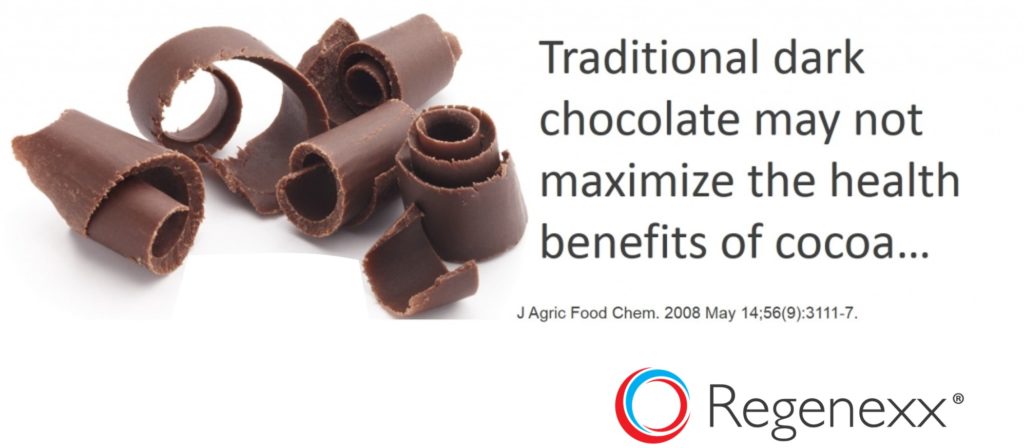How can You Maximize the Health Benefits of Chocolate?
How can you maximize the health benefits of chocolate? While chocolate is really good for you, what if the way it’s processed removed the good stuff? A study suggests that you may not be getting as much benefit from chocolate as you could.
Chocolate is made from cocoa beans. These beans are normally processed with alkali to make the acidic chocolate less bitter. The better the chocolate powder tastes on it’s own, the more alkali. For instance, chocolate destined to end up in sweets is often processed via a Dutch method where loads of alkali are used. On the other hand, it’s tough to find chocolate that’s just been treated via the more natural “Broma” process, where a bag of beans is left to hang in a warm room and the cocoa fat drips out, leaving dry beans that can be turned into cocoa powder.
Study after study shows that chocolate is really good for you. It’s secret is that cocoa contains flavinoids, polyphenol chemical compounds which are potent anti-oxidants and anti-inflammatories. As examples, in one German study, dark chocolate produced the same health benefits as cholesterol lowering drugs. In a recent trio of studies, dark chocolate helped arteries and blood pressure. And a brand new study published this week, after studying 20,000 men, concluded that dark chocolate reduced heart failure rates.
However, what if a study showed that how chocolate is processed may be reducing it’s health advantages? A study out of Spain looked at this issue, measuring a type of flavinoids that have been associated with health benefits. What they found was that the more alkali treatment the cocoa received to improve it’s taste, the less good chemicals were present in the cocoa.
The upshot? The good news is that most studies showing health benefits from eating cocoa use the consumption of dark chocolate and still see effects. However, if you were trying to maximize the health benefits of chocolate, you should probably forgo the Hershey’s dark chocolate bar and use untreated cocoa powder instead.

If you have questions or comments about this blog post, please email us at [email protected]
NOTE: This blog post provides general information to help the reader better understand regenerative medicine, musculoskeletal health, and related subjects. All content provided in this blog, website, or any linked materials, including text, graphics, images, patient profiles, outcomes, and information, are not intended and should not be considered or used as a substitute for medical advice, diagnosis, or treatment. Please always consult with a professional and certified healthcare provider to discuss if a treatment is right for you.

